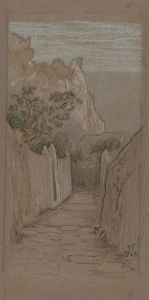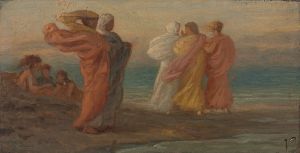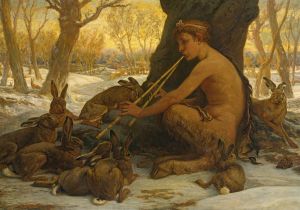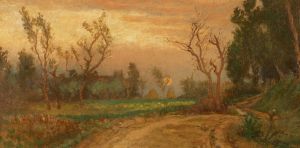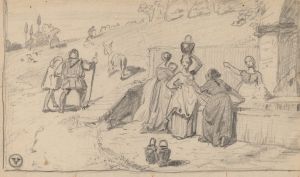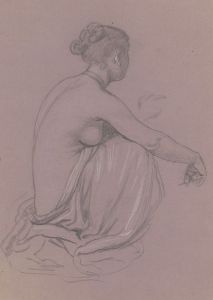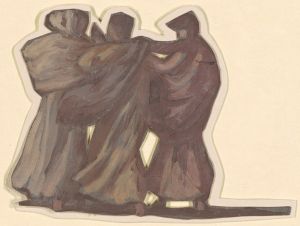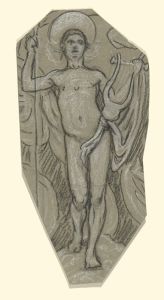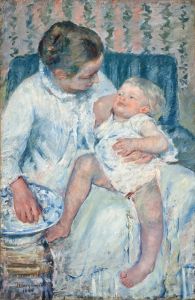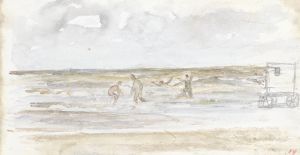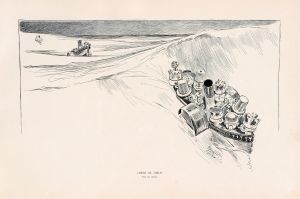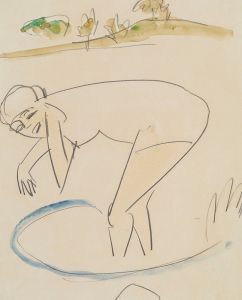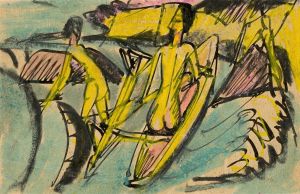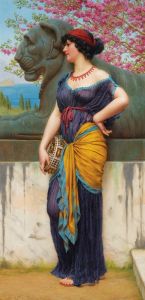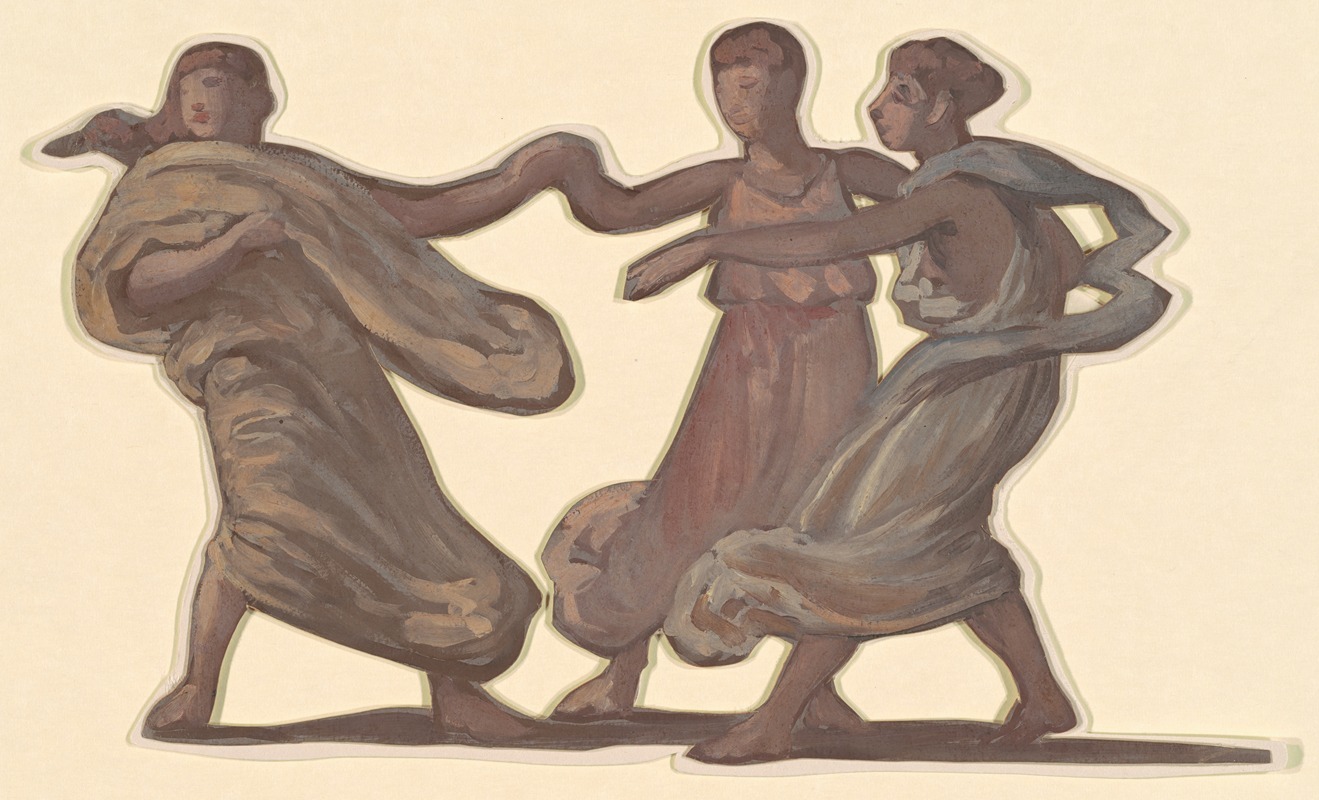
Study for ‘Greek Girls Bathing’ II
A hand-painted replica of Elihu Vedder’s masterpiece Study for ‘Greek Girls Bathing’ II, meticulously crafted by professional artists to capture the true essence of the original. Each piece is created with museum-quality canvas and rare mineral pigments, carefully painted by experienced artists with delicate brushstrokes and rich, layered colors to perfectly recreate the texture of the original artwork. Unlike machine-printed reproductions, this hand-painted version brings the painting to life, infused with the artist’s emotions and skill in every stroke. Whether for personal collection or home decoration, it instantly elevates the artistic atmosphere of any space.
Elihu Vedder was an American symbolist painter, born on February 26, 1836, in New York City. He is known for his imaginative and often mystical works, which frequently incorporate themes from mythology, literature, and the human condition. Vedder spent a significant portion of his life in Italy, where he was influenced by the classical art and culture that surrounded him.
One of Vedder's notable works is "Study for ‘Greek Girls Bathing’ II." This piece is a preparatory study, which means it was created as part of the process of developing a larger or more finished work. As with many of Vedder's works, this study reflects his interest in classical themes and the human form. The title suggests a scene of Greek girls bathing, a subject that aligns with the classical and mythological themes prevalent in Vedder's oeuvre.
The study likely features figures in a natural setting, possibly near a body of water, as suggested by the title. Such scenes were popular in 19th-century art, drawing on the romanticized view of ancient Greece as a place of beauty, harmony, and idealized human forms. Artists of Vedder's time often depicted bathing scenes to explore the beauty of the human body and to evoke a sense of timelessness and tranquility.
Vedder's technique in his studies often involved careful attention to detail and composition. He was known for his ability to convey emotion and narrative through the positioning and expressions of his figures. In "Study for ‘Greek Girls Bathing’ II," one might expect to see a focus on the interplay of light and shadow, as well as a harmonious arrangement of the figures within the landscape.
While specific details about this particular study are limited, it is consistent with Vedder's broader body of work, which often explored themes of beauty, mythology, and the human experience. His studies were an integral part of his creative process, allowing him to experiment with composition and form before committing to a final piece.
Elihu Vedder's contributions to art extend beyond his paintings. He was also an accomplished illustrator, most famously for his work on the 1884 edition of "The Rubaiyat of Omar Khayyam," which remains a celebrated example of book illustration. Vedder's art continues to be appreciated for its imaginative qualities and its ability to transcend the ordinary, inviting viewers into a world of myth and mystery.
"Study for ‘Greek Girls Bathing’ II" exemplifies Vedder's skill in capturing the essence of classical themes while infusing them with his unique artistic vision. Although the study itself may not be as widely recognized as some of his other works, it remains an important part of his artistic legacy, reflecting his enduring fascination with the beauty and complexity of the human form.





